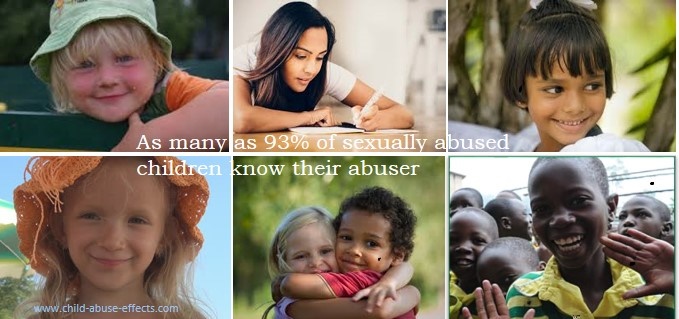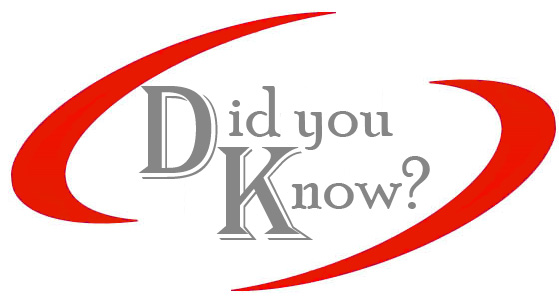Child Sex Offenders

In Canada, child sex offenders must be two years older than the victim in order for sexual abuse to have legally taken place.
Children who molest children are almost always acting out their own sexual victimization. Children who molest not only have a history of sexual abuse, they also have experienced physical and emotional abuse.
|
Typically, child offenders have witnessed extreme physical violence between their caregivers in their home environment. Often times, these violent episodes are marked by a "honeymoon" period of sexual stimulation between the caregivers, sending the message that violence and sexual activity go hand in hand.
|
|
The difference between normal sexual exploration between children and child sex offenders:
- Normal sexual activity in children involves: » mutual interest, and
» consent between children of similar ages, size and development
- It is playful and limited in type and frequency.
- There is a balance between sexual interest and curiosity about life.
 | It is expected that 40% to 75% of children will engage in some sort of sexual behaviour before reaching 13 years of age (Cavanagh, Johnson & Friend, 1995, p. 552). In these situations, children are exploring each other's bodies while also exploring gender roles and behaviours; it does not mean these children are child sex offenders. |
The following table shows some guidelines that differentiate between normal sex play and sexual behaviours that cause concern.
Comparison of Sexualized Behaviours in Children |
|---|
» Sexual behaviours that are engaged in by children of different ages or developmental levels or who do not have an ongoing, mutual play relationship. |
» Sexual behaviours that are out of balance with other aspects of the child's life and interests. |
» Chiildren who seem to have too much knowledge about sexuality and behave in ways more consistent with adult sexual expression. |
» Sexual behaviours that are significantly different from those of other same-age children. |
» Sexual behaviours that continue in spite of consistent requests to stop. |
» Sexual behaviours that occur in public or in other places where the child has been told these behaviours are not acceptable. |
» Sexual behaviours that are eliciting complaints from other children and/or adversely affecting them. |
» Sexual behaviours that are directed at adults which are more akin to adult-adult sexual contact. |
» Children (4 years and older) who do not understand their rights or the rights of others in relation to sexual contact. |
» Sexual behaviours that progress in frequency, intensity, or intrusiveness over time. |
» When fear, anxiety, deep shame, or intense guilt are associated with the sexual behaviours. |
» Sexual behaviours that cause physical or emotional pain or discomfort to self or others. |
» When anger precedes, follows or accompanies the sexual behaviour. |
» When verbal and/or physical aggression precedes, follows or accompanies the sexual behaviour. |
» When coercion, force, bribery, manipulation, or threats are associated with sexual behaviours. |
Some Statistics on Child Sex Offenders:
 |
In an American Justice Department Survey of 60,991 victims, child sex offenders aged 7-11 years of age were responsible for 3.6% of all sexual assaults committed (Snyder, 2000, p. 84). |
 |
72% of child sex offenders who began molesting between 4-6 years of age had documented histories of sexual abuse, whereas 42% of children 7-10 years of age and 35% of children 11-12 years had documented histories of sexual abuse (Cavanagh Johnson, 1993, p. 74; Araji, 19975). |
 |
Children who are sexually abused by child sex offenders suffer the same severity of negative consequences as children sexually abused by adults (Kikuchi, 1995, p. 1116). |
 |
Among adults convicted of sex crimes, 30% began offending before they were 9 years old (Cantwell, 1995, p. 917). |
 |
Child sex offenders are immature and tend to act impulsively. Many find it hard to make friends, have poor self-esteem and view themselves as social outcasts (Gil, 19958). |
<< Back to Sex Offenders
References
NOTE: Information pages on this site were based on material from the  Canadian Red Cross RespectED Training Program. Written permission was obtained to use their copyrighted material on this site.
Canadian Red Cross RespectED Training Program. Written permission was obtained to use their copyrighted material on this site.
1, 2 & 3 Cavanagh Johnson, T. & Friend, C. (1995). Assessing young children's sexual behaviours in the context of child sexual abuse evaluations. In T. Ney (Ed.), True and False Allegations of Child Sexual Abuse: Assessment and Case Management (49-72). New York: Brunner/Mazel.
4 Snyder, H. (2000, July), Sexual assault of young children as reported to law enforcement: Victim, incident, and offender characteristics. Retrived December, 2002, American Bureau of Justice Statistics Clearinghouse, http://www.ojp.usdoj.gov/bjs/ 312-314.
5 Araji, S. (1997). Sexually aggressive children: Coming to understand them. Thousand Oaks, California: SAGE Publications, Inc.
6 Kikuchi, J. (1995). When the offender is a child: Identifying and responding to juvenile sexual abuse offenders. In M. Hunter, (Ed). Child Survivors and Perpetrators of Sexual Abuse: Treatment Innovations. Thousand Oaks, California: SAGE Publications, Inc.
7 Cantwell, H. (1995). Sexually aggressive children and societal response. In M. Hunter, (Ed). Child Survivors and Perpetrators of Sexual Abuse: Treatment Innovations. Thousand Oaks, California: SAGE Publications, Inc
8 Gil, E. (1995). A guide for parents of children who molest. Rockville, MD: Launch Press.
From Victim to Victory
a memoir
How I got over the devastating effects of child abuse and moved on with my life
From Victim to Victory
a memoir
How I got over the devastating effects of child abuse and moved on with my life
Most Recent
-
Converging Stolen Lives
Jan 30, 18 01:13 PM
There was a time and space I didn’t think about you, or your abuse. Where when I looked back at my life, I only saw normal things, a normal childhood. -
A letter to one of the 13 Turpin children
Jan 29, 18 11:33 AM
A heartfelt letter by a former classmate that speaks to bullying and regrets. You'll find it on my Facebook group. I hope you'll join and get in on the discussion. -
Dissociated From Abuse
Jan 29, 18 11:00 AM
I was sexually abused by my father from age 6 to 13, which stopped when I started talking about it during the day. The teenage brother of my best friend
 When a child has been sexually used, abused, or overly exposed to adult sexuality, disruptions in multiple areas of the child's sexual development may occur (Cavanagh Johnson & Friend, 1995, p. 501).
When a child has been sexually used, abused, or overly exposed to adult sexuality, disruptions in multiple areas of the child's sexual development may occur (Cavanagh Johnson & Friend, 1995, p. 501).


